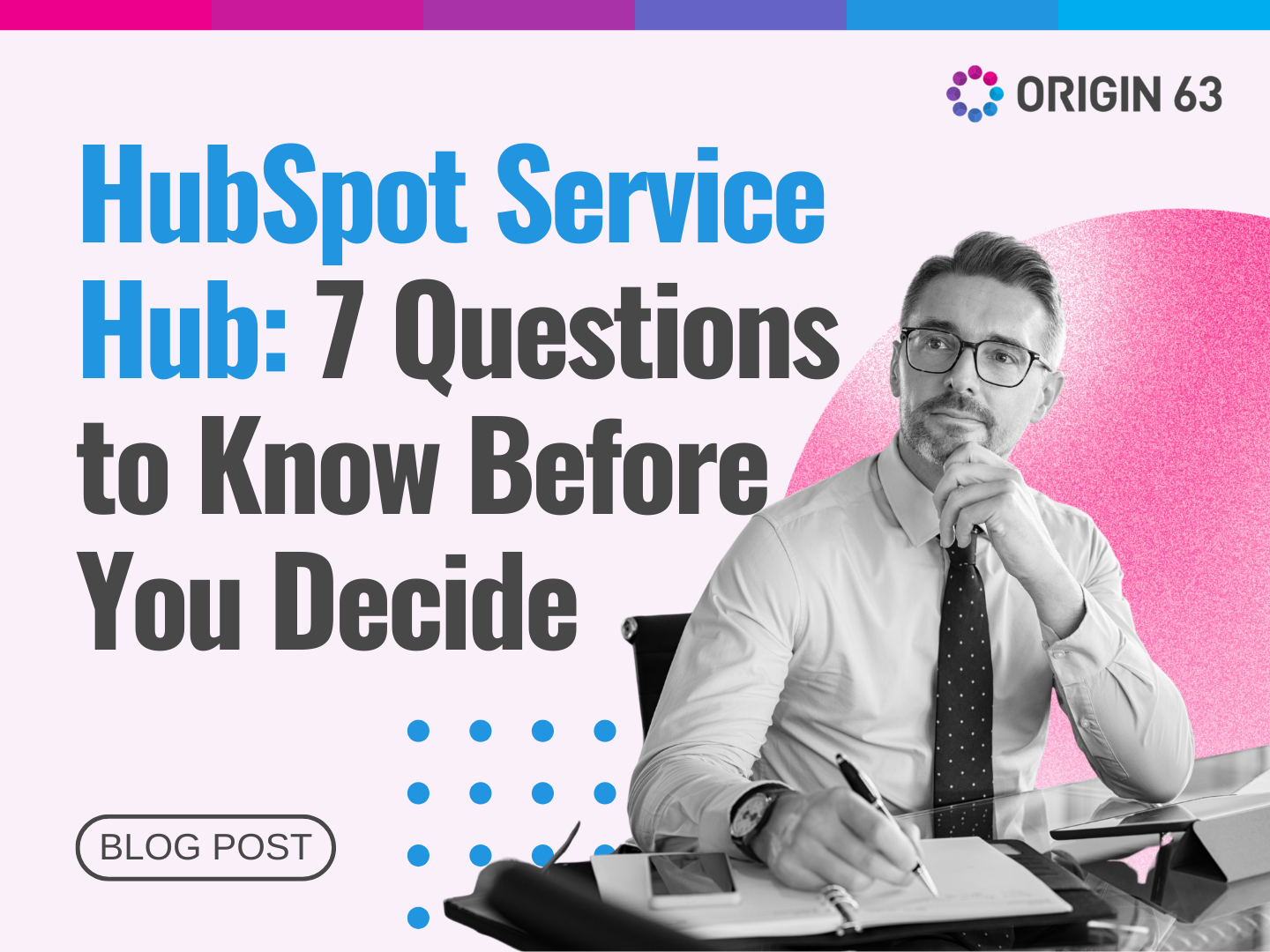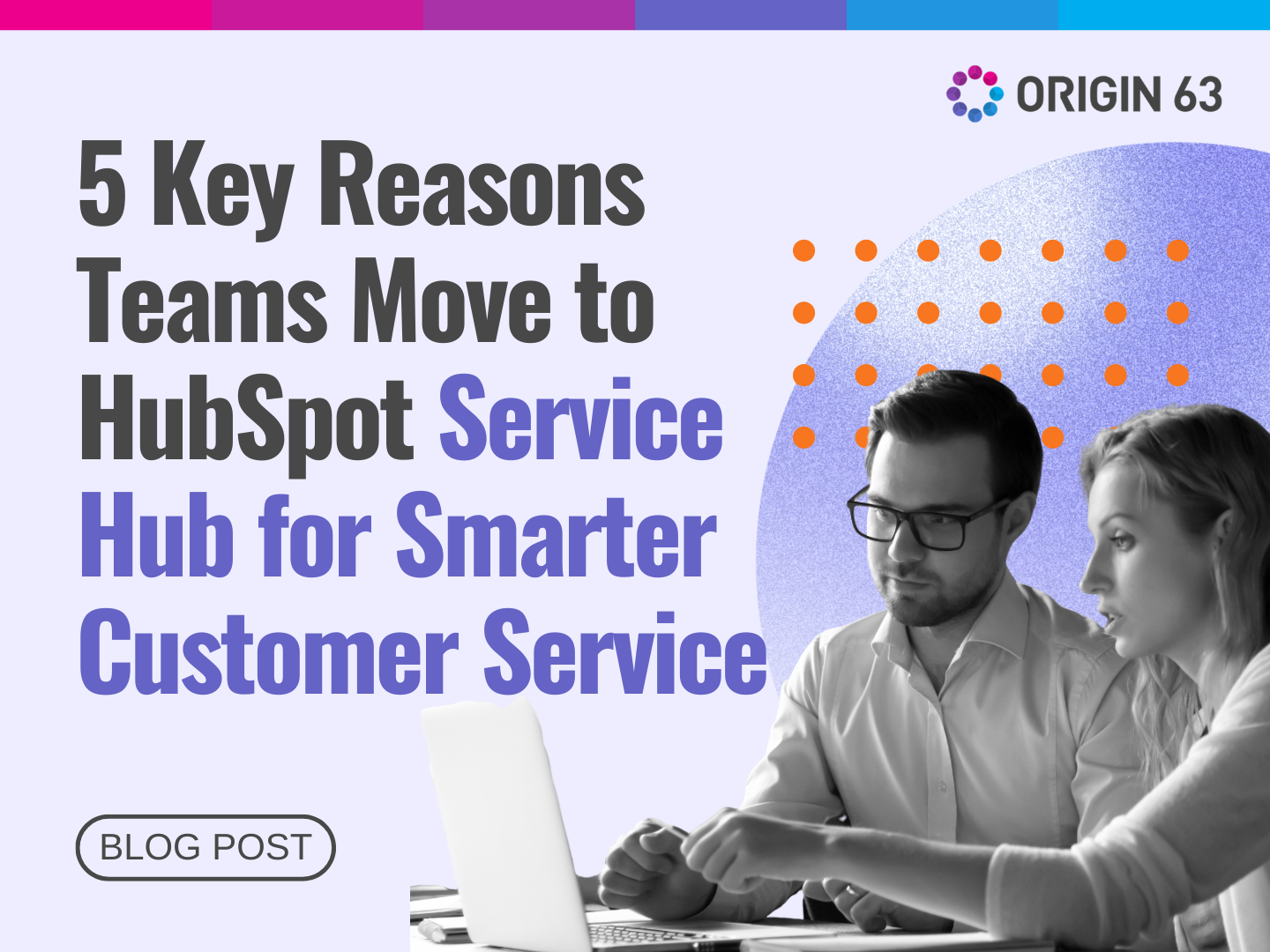Customers have high service expectations, and businesses that fail to meet those expectations risk losing customers to competitors. Improving customer service should be a top priority no matter your industry.
Customer service is about creating a positive experience for customers. It involves not only addressing their concerns and resolving issues promptly but also anticipating their needs and exceeding their expectations.
This blog will explore what you need to improve customer service, from equipping service teams to omnichannel solutions. By improving customer service, you can build long-lasting customer relationships, increase loyalty, and drive growth and profitability.
Why Equipping Customer Service Teams Matters

Providing excellent customer service is essential for businesses to succeed. But it's not just about having policies and procedures in place – it's about empowering your frontline customer service employees with the right resources, training, and support.
When customer service teams are properly equipped, they can deliver consistently outstanding service that keeps customers happy and coming back. Here are more reasons why you should empower your customer service teams:
Connection Between Employee Satisfaction and Customer Satisfaction
There’s a direct link between how satisfied your employees are and the quality of service they provide to customers. In a call center study, happy customer service employees were 13% more productive.
Happy, engaged employees who feel valued and supported are likelier to go the extra mile to ensure customers have a positive experience.
Conversely, disgruntled employees who don't feel invested in their jobs are less motivated to deliver great service. Microsoft’s Work Index report showed that one of the top five obstacles hindering productivity is feeling uninspired and lacking clear goals.
Therefore, investing in your customer service team's satisfaction pays off through improved customer loyalty and retention as they’re more motivated to do their best.
Simple efforts like providing effective training, comfortable workspaces, empathetic team leadership, and appropriate recognition can go a long way.
Recognizing Customer Service as an Investment
Despite the clear connection between employee satisfaction and work performance, some businesses still view customer service as merely a cost center rather than a revenue-driving investment.
According to data from the 2022 State of Customer Service report, 40% of service leaders say their company sees customer service as an expense.
This perception is shortsighted. While outstanding customer service requires proper funding for staffing, training, and technology, the returns are well worth it through increased customer loyalty and lifetime value.
If your service is subpar, 73% of your customers will go to a competitor. That's potential revenue walking out the door that could have been saved by investing in exceptional customer service. The best companies recognize this and view top-notch service as a key competitive advantage.
Importance of Brands in Attracting and Retaining Customers

Customers have endless options for meeting their needs. That's why you should build a reputable brand to attract new customers and keep existing ones loyal.
One of the biggest factors shaping a company's brand perception is the service experience it provides. For 66% of customers, a brand’s customer service reputation will be a deciding factor before purchasing.
Customers who experience positive interactions with knowledgeable, friendly, and helpful service staff are more likely to continue doing business with that company and recommend it to others.
However, even a single negative experience can tarnish the brand's reputation in the customer's mind. That's why you should emphasize consistently delivering service that meets or exceeds expectations if you’re hoping to stand out from competitors.
How to Equip Service Teams
Even with the best intentions, providing excellent customer service is challenging without the proper resources. Customer service teams need the right tools, training, and working environment to be at their best.
1. Motivating and Comforting Employees
Customer service can be stressful — your reps may deal with disgruntled customers and difficult situations daily! So, you should motivate and comfort them. When they feel motivated and confident, they can provide much better service.
Some approaches to motivating service teams include recognizing and rewarding great performance, offering incentives and bonuses, and promoting from within.
They also benefit from manageable workloads, flexible schedules when possible, and comfortable workspaces designed for their needs.
Remember also to comfort reps, especially after a tough interaction. An empathetic team leader who provides supportive listening and coaching can go a long way.
Give employees the ability to temporarily step away after a difficult call to reset. Small gestures like these help reduce stress and burnout.
2. Providing the Right Resources and Technology
Apart from paying to the human side of customer service, equipping teams with the latest technologies and resources helps them deliver modern, efficient support that meets customer expectations.
At a minimum, customer service teams need an efficient CRM software for tracking interactions across channels and integrated knowledge bases to find answers quickly.
Advanced technologies like AI-powered chatbots can handle simple inquiries automatically, while analytics platforms provide insight into service metrics and customer sentiments.
You want to empower agents with tools that boost productivity and first-call resolution rates. When teams have the right resources, they can focus on creating pleasant, personalized experiences that keep customers satisfied.
Omnichannel Solutions: A Necessity

Customers expect to be able to engage with businesses seamlessly across multiple channels and devices. Providing this kind of integrated, omnichannel experience is no longer just a nice-to-have; it's an absolute necessity in the digital age.
Digital Transformation Accelerated by COVID-19
The COVID-19 pandemic acted as a catalyst that accelerated many companies' digital transformation efforts out of necessity.
As businesses shifted to more remote operations and contactless service, adopting digital channels like mobile apps, online chat, virtual assistants, etc., became critical to continuity.
Customers are now used to this digital-first experience and expect the same flexibility and convenience in their interactions. Companies that were resistant or slow to modernize were forced to catch up.
Current State of CRM Adoption
While the importance of CRM and omnichannel solutions is widely recognized, implementation has been uneven across industries. HubSpot’s 2022 State of Customer Service report found:
- Just 50% of companies have equipped their service teams with essential CRM features like a help desk, knowledge base, and shared email capabilities.
- 95% of customer service leaders believe that using a CRM platform is an effective way to boost productivity.
- The adoption of technology by customer service teams is on the rise, showing a significant 30% increase in CRM usage compared to last year.
- While only 24% of companies experiencing no growth use a CRM for customer data management, a higher percentage of low growth (44%) and high growth (48%) companies leverage CRM tools.
- High-growth companies lead in using help desks, with 60% reported usage, surpassing both low and no-growth cohorts.
By integrating various communication channels (such as phone, email, social media, and live chat) in a CRM, customer information and interaction history are easily accessible to service reps.
These stats highlight the importance of adopting an integrated approach to customer experience management, enabling businesses to deliver consistent, personalized, and efficient support across all channels.
The Need for Businesses to Catch Up

Customers now expect businesses to engage with them across multiple channels. Businesses that fail to provide this flexibility increasingly risk losing out to nimbler, more digitally-savvy competitors.
Modern customers don't distinguish between service channels — they expect fast, personalized, accurate support, whichever method they choose to engage.
That means companies must invest in integrated omni channel platforms that unite all communication channels into a single view for service agents.
With the right omnichannel solutions, you can meet customers when and how they prefer, with full conversation history and context at the agent's fingertips. This level of seamless experience prevents frustrating disjoints and improves first-contact resolution rates.
Customer Service as a Competitive Advantage
No matter the industry, every business wants to stand out. They seek unique advantages that attract customers away from rivals.
Some companies attempt to achieve this through lower prices. Others differentiate through innovative offerings or premium quality. However, most overlook attentive, personalized customer service as a defining differentiator.
Customer Service as a Unique Differentiator
While product quality is important, customer service represents the front line where businesses have direct human interactions that shape perceptions.
A customer may be on the fence between two companies, but if one provides a superior service experience before and after the sale, that can be the deciding factor. 93% of customers will do business with a company again if they have excellent service.
Knowledgeable, friendly, and responsive service that resolves issues promptly creates positive feelings and lasting customer relationships. On the other hand, frustrating interactions with untrained, apathetic, or unhelpful service staff will drive your customers to competitors.
Prevent Customer Churn Through Excellent Service
Perhaps the most compelling argument for prioritizing service is its ability to retain customers and reduce costly churn. Numerous studies have shown that many customer defections stem from perceived poor service or unresolved issues:
- When faced with multiple negative experiences, about 73% of consumers prefer switching to a competitor for their business, according to Zendesk’s 2024 Customer Experience report.
- On average, almost half of customers (49%) have switched brands in the last year because of a poor customer experience, says Emplifi.
- The same Emplifi report showed that 1 in 6 shoppers will decide not to purchase due to a bad customer experience.
However, many of these cases are preventable with proper service quality and training investments. You can prevent around 67% of churn if you resolve the customer’s problem during their first interaction with your brand.
Impact of Well-Trained Customer Service Teams

While many businesses understand the importance of customer service in theory, those that truly invest in developing well-trained, empowered service teams see outsized rewards.
Knowledgeable agents who embody the brand's values and prioritize customer satisfaction can directly impact revenue, reputation, and growth.
The Power of a Positive Service Team
A customer's interactions with front-line service staff shape their entire perception of a company. Agents who are positive, patient, knowledgeable about products/services, and committed to resolving issues completely create outstanding impressions.
Well-trained teams can adeptly handle and de-escalate even the most frustrated customers with professionalism. They make customers feel heard, important, and leave interactions with their concerns addressed. This emotional intelligence is invaluable for retaining business.
Proper training also equips agents to cross-sell and upsell successfully. By really understanding customer needs, they can recommend tailored solutions and add-ons, unlocking revenue opportunities while providing helpful advice.
Acquiring New Customers Through Service
48% of modern consumers freely share service experiences, both positive and negative, across reviews, social media, and personal networks.
A pattern of frustrating service at one company can drive customers to try alternatives that have reputations for far superior experiences.
However, consistently great service gives you low-cost, powerful advertising through word-of-mouth. As companies disappoint customers with mediocre support, well-trained teams can actively poach those customers through attentiveness and professionalism.
Elevating Your Business Through Service Excellence
Delivering outstanding customer service is no longer just a competitive advantage — it's imperative for businesses hoping to attract and retain loyal customers with endless choices.
As Jeff Bezos put it, “We see our customers as invited guests to a party, and we are the hosts. It's our job every day to make every important aspect of the customer experience a little bit better.”
Customer service isn't just about checking boxes. It requires going above and beyond to anticipate needs, personalize gestures, and create memorable positive experiences. Just like a good host ensures guests have what they need before being asked.
By prioritizing investments in tools, training, and support for customer service teams, companies can cultivate experiences that drive lasting relationships and revenue growth.
Commit to Customer Service Transformation with Origin 63
Ready to elevate your business by delivering best-in-class customer experiences?
HubSpot's powerful service solutions provide the unified tools and automation to streamline operations and wow customers, while partnering with Origin 63 ensures proper implementation tailored to your needs.
Take the first step today towards optimizing your service capabilities across channels, reducing customer churn, and turning service into a sustainable competitive edge.
Contact our team to learn more about how Origin 63 can facilitate your customer service transformation.













.png?width=90&height=90&name=Arrows%20Partner%20Badge-test%20(1).png)

